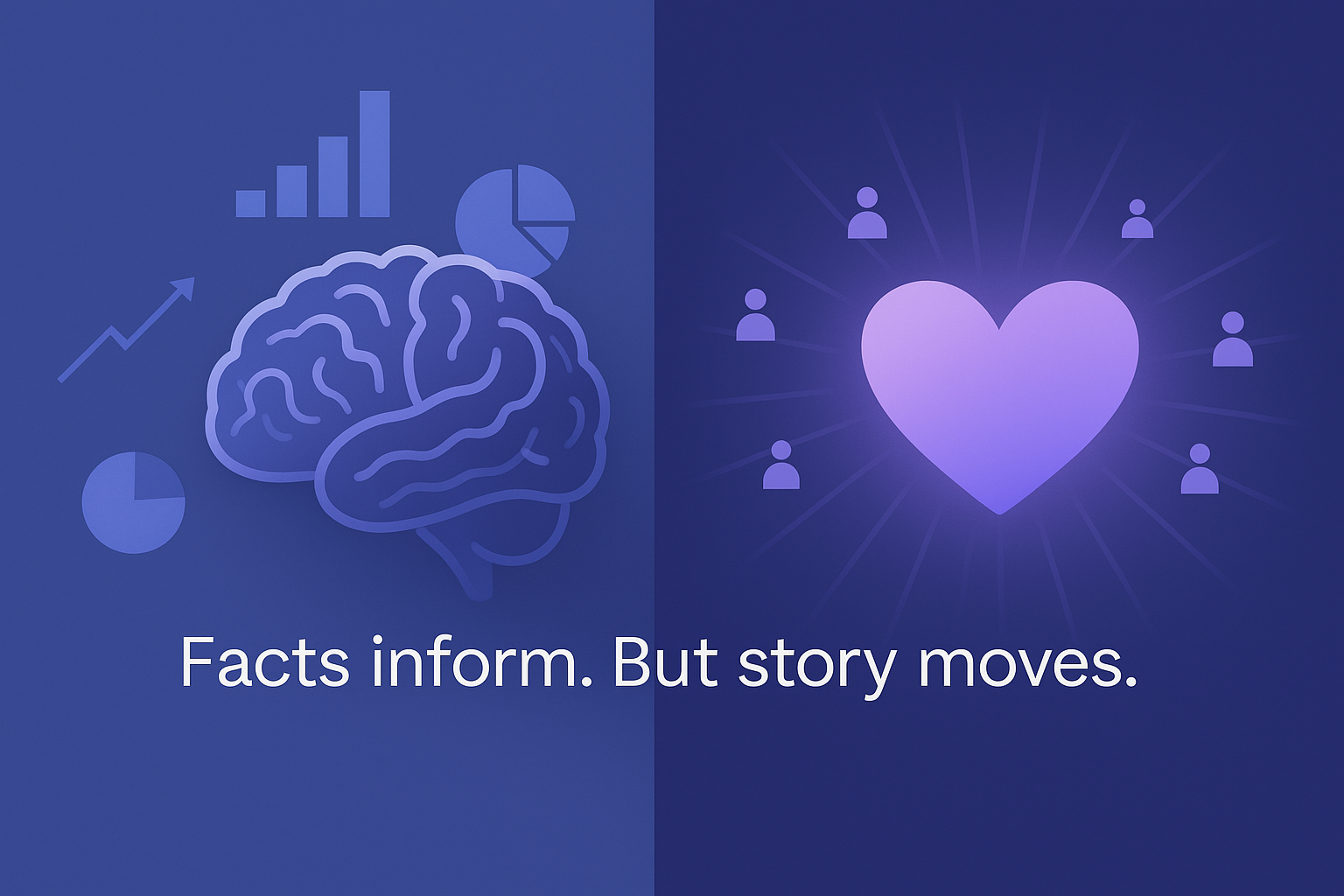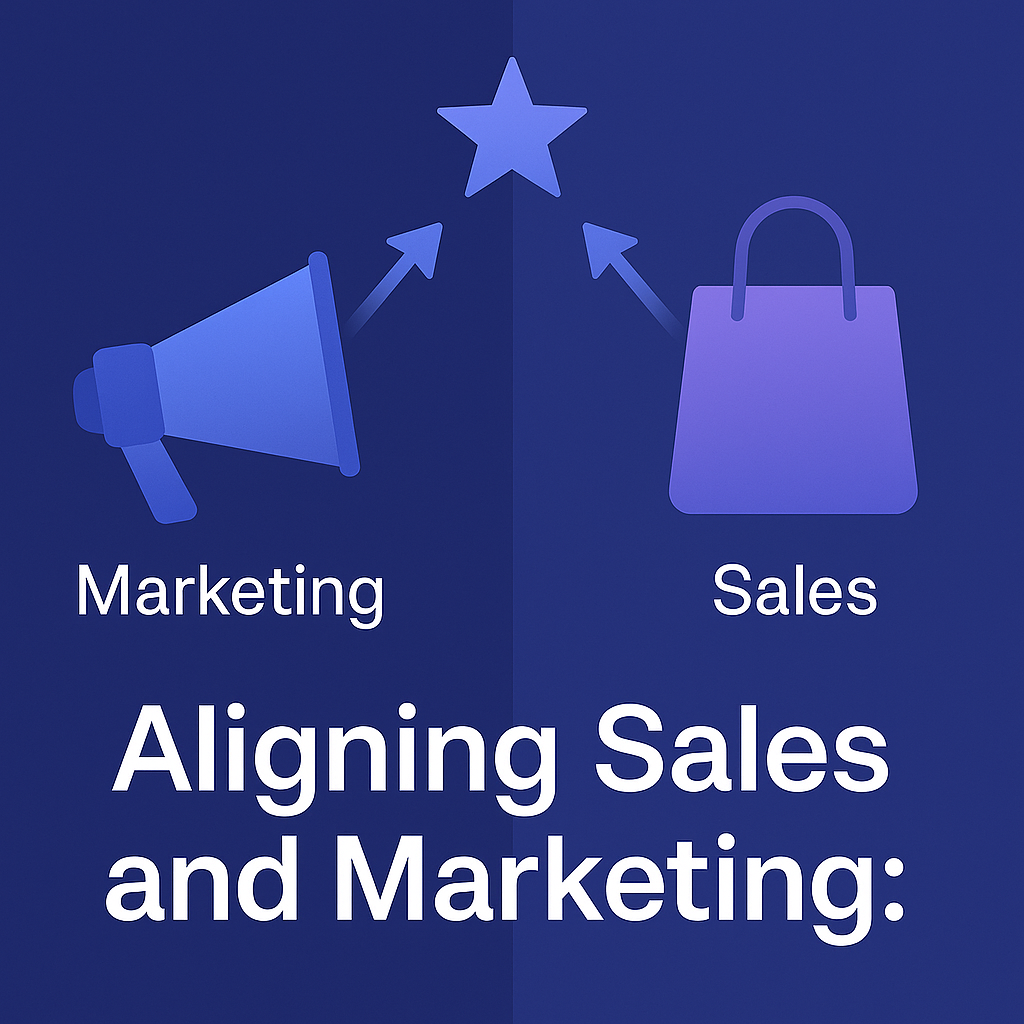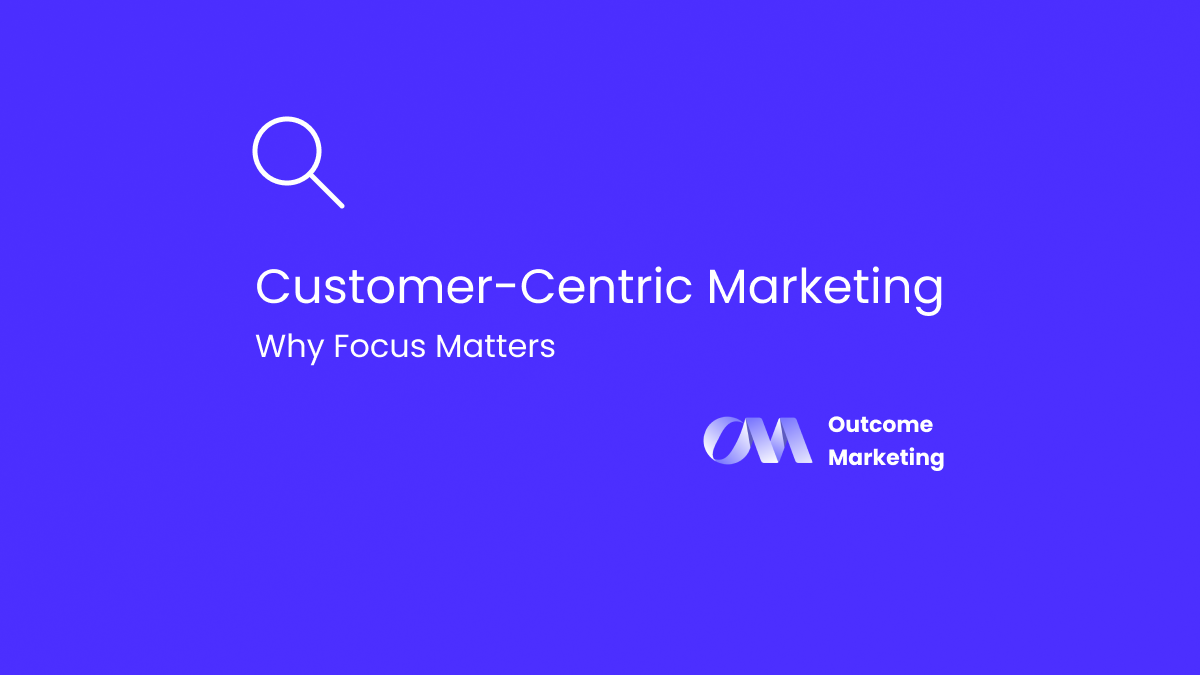Aligning Sales and Marketing: 9 Proven Tips for Real Collaboration
In too many B2B organizations, Sales and Marketing operate like neighboring countries with a long border but no shared language. They nod politely...
2 min read
 Neil Anderson
:
Updated on May 30, 2025
Neil Anderson
:
Updated on May 30, 2025

“People will forget what you said, people will forget what you did, but people will never forget how you made them feel.”
— Maya Angelou
In the world of B2B marketing, information is everywhere. But emotion? That’s what cuts through.
A well-crafted marketing story doesn’t just describe your product — it connects, aligns, and inspires. It’s how companies move from being one of many to the one that buyers remember.
At Outcome Marketing, we believe story is the most underutilized — and most powerful — tool in your go-to-market strategy. And it all starts with alignment and emotion.
If your team can’t tell a consistent story, how can your buyers understand your value?
Facts inform. But story moves. And when story is rooted in purpose and reinforced across every touchpoint, it builds a brand that drives real business outcomes — from lead engagement to revenue growth.
Marketing without a story is just noise.
Here’s the framework we teach in Outcome Marketing to help companies build an aligned, emotionally resonant brand story:
What’s the future state you’re helping to create?
Your vision should be aspirational and emotional — something that excites your team and inspires your market. It’s the "why" behind the work.
Example: Drive ethics to the center of business for a better world.
How are you delivering on that vision right now?
Your mission makes the vision actionable. It guides your team’s work and keeps efforts aligned.
Example: Connect ethics to business performance.
What behaviors and beliefs define your culture?
Great values go beyond generic phrases. They guide hiring, communication, and strategic decisions. They must be lived, not laminated.
Example:
Who’s your customer? What problem are you solving? Why are you better?
Positioning brings your story to market. It answers the essential sales questions: Why Buy? Why You? Why Now?
Elevator Pitch Example:
“Sixty percent of digital transformations fail. We make them simple, straightforward, and successful — every time.”
Here’s a simple visual to unify the framework:

Modern B2B buyers don’t make decisions on logic alone. In fact, research shows emotional marketing is more persuasive — even in enterprise settings.
Your story must connect with:
When you build this connection, you don’t just earn attention — you earn trust.
A story only works if it’s consistently told. That’s why your style guide is a critical output of the Story process. It ensures brand consistency across your team, partners, and campaigns.
Include:
When everyone tells the same story, the market listens.
Your story is not just marketing. It’s culture. It’s strategy. It’s execution. And it cannot be outsourced.
When leaders align around a shared story — and infuse it with emotion — they unlock something far greater than branding. They create momentum.
So what’s your story? And does everyone on your team know how to tell it?
Want a simple worksheet to align your team around your vision, mission, values, and positioning?
– A fill-in-the-blank template to help you craft a compelling brand narrative with your leadership team.
This blog draws from Chapter 3 of the book Outcome Marketing — a field-tested playbook for CEOs and marketing leaders who want to build repeatable, results-driven growth.
Get your copy at outcome.marketing or search “Outcome Marketing” on Amazon.

In too many B2B organizations, Sales and Marketing operate like neighboring countries with a long border but no shared language. They nod politely...

How to Find the “Why” — and Put Pipeline Back on Track Most B2B companies review a sales pipeline report every week. But the story is almost always...

Customer-Centric Marketing: Why Focus Matters You know that feeling when you’re at a buffet and your plate looks like a mountain of random food? Some...